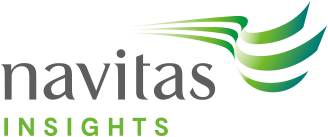
Flexible learning and teaching: Redesigning delivery for offshore students
The COVID-19 crisis and ongoing closure of international borders necessitated education providers to rapidly transition to online delivery while maintaining the same level of quality learning teaching, regardless of students’ geographic location. Flexible Learning offers students flexibility in their learning experience while ensuring minimal disruption.
Navitas University Partnerships Australasia (UPA), comprising English language providers, pathway providers and managed campuses, felt the full force of border closures and have used the last 12 months to research, develop and pilot a Flexible Learning solution, redesigning College units to combat unpredictable lockdowns and border closures.
Flexible Learning is adapted from Brian Beatty’s HYFlex model (Beatty, 2019) and offers students flexibility in their learning experience while ensuring minimal disruption to classes at a time when on-campus classes can no longer be guaranteed.
UPA is at a juncture whereby our students require, and in some cases expect flexibility with where, how and when they study. Where viable, some students have returned to study on campus. However, after a year of learning online, student feedback received within Navitas colleges indicates this transition has often required a level of adjustment, and some indicate they do not want to be back on campus on a full-time basis.
While meeting friends and lecturers in person is a benefit for international students, the prospect of being required to be on campus comes with challenges. In other cases, students tell us how well they have adapted to studying online, enjoying the flexibility that online learning offers.
Besides this, we also know that snap lockdowns across Australian states may occur creating a reality where students may study on campus one day but be forced to study at home the next. Despite ongoing debates to bring back international students, border closures are reported to remain in place till mid 2022 meaning flexible teaching and learning strategies remain crucial.
Considering these challenges, Flexible Learning offers a solution for educational institutions to always be ‘pandemic ready’, future proofing student learning. The model provides flexibility for students to attend classes in one of three learning modes: on campus, online synchronously (concurrent via videoconferencing), or asynchronously (via a learning management system), forming one single learning community. Students are afforded the flexibility of choosing from the three learning modes each week, depending on their circumstances and requirements. This means that international students, regardless of time zones, are easily accommodated due to the flexibility of the model.
Apart from the benefits flexible delivery brings to an unstable educational environment, flexible learning also provides learning and teaching advantages. Historically, there are perceptions that online learning may be inferior to on-campus learning (Li & Atkins, 2005). Even quite recently, discussions within higher education institutions revolve around the possibility of reducing fees for international students who study solely online, with some institutions already reducing fees and openly marketing this to students (Mulder, 2021). This does little to promote online learning and teaching that produces quality student experiences and outcomes when done right. To counter these perceived inequalities, re-designed units following the Flexible Learning model satisfy principles not only of flexibility of delivery, but also ensures equivalency of activities, versatility of activities, accessibility and, connectivity to peers and teachers, across all three delivery modes. International students who then choose to study either solely online, or concurrently via videoconferencing, are afforded similar quality learning and teaching experiences leading to the same learning outcomes as those studying on-campus.
Further, Flexible Learning draws on frameworks including the Community of Inquiry Framework, Universal Design for Learning, Flipped learning, Connectivism and Social constructivism. These are well-known researched frameworks that support various modes of learning. So, for example, the Community of Enquiry framework focuses on cognitive, social, and teaching presence within online learning environments to support participation and shared meaning making among students and teachers. The Universal Design for Learning framework supports learners accessing and participating in meaningful, challenging learning opportunities. The Flipped Learning approach enables students to learn less active work individually in their own time, whilst collaborative activities are developed to allow students to the apply concepts and actively engage with the subject matter with others. Connectivism promotes principles such as learning as a process of connecting and knowledge occurring/developing in diversity of opinions. These frameworks all focus on connectivity and meaning making across all modes of learning, and in supporting a sense of belonging, no matter what modes student choose to undertake each week.
To provide evidence-based results for continuous improvement of Flexible Learning, Navitas UPA is conducting research and evaluation throughout the Flexible Learning project. A Flexible Learning research group is also working on college case studies and a definition of success for the implementation of Flexible Learning, which will provide the means for gathering and analysing data both short and long term. Our findings will go towards filling the gap of research on providing flexible learning and teaching approaches to pathway students.
Click on the following links for more information on Flexible Learning and the Flexible Learning Design Program.
References
Beatty, B. J. (2019). Hybrid-Flexible Course Design (1st ed.). EdTech Books. https://edtechbooks.org/hyflex
Mulder, D. (22 January 2021) Dirk Mulder on pandemic pricing for off-shore enrolments. Campus Morning Mail. Retrieved from https://campusmorningmail.com.au/news/dirk-mulder-on-pandemic-pricing-for-off-shore-enrolments/
Li, Q., & Akins, M. (2005). Sixteen myths about online teaching and learning in higher education: Don’t believe everything you hear. TechTrends, 49(4), 51-60.



